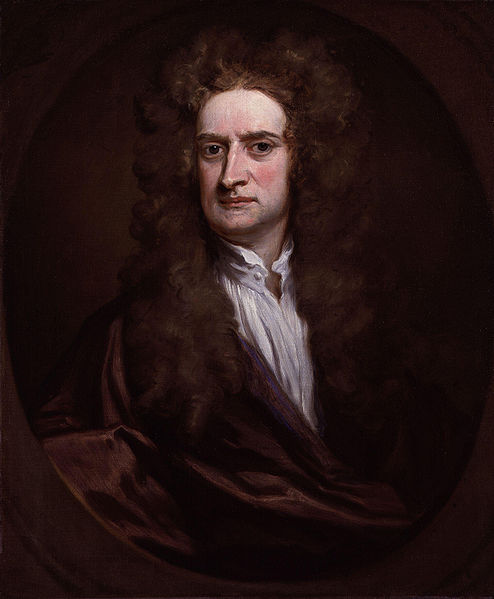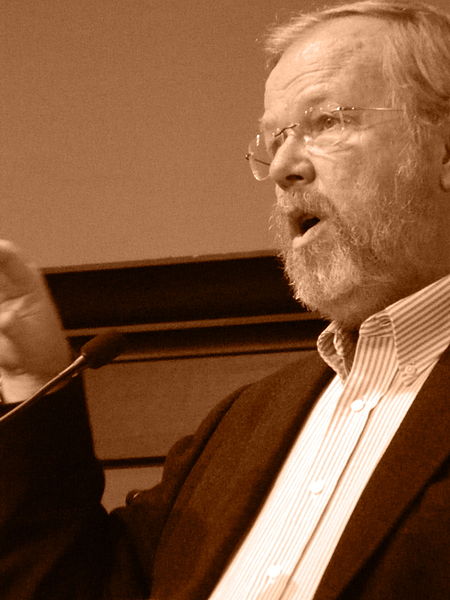Sir Isaac Newton was an English polymath active as a mathematician, physicist, astronomer, alchemist, theologian, and author who was described in his time as a natural philosopher. He was a key figure in the Scientific Revolution and the Enlightenment that followed. His pioneering book Philosophiæ Naturalis Principia Mathematica, first published in 1687, consolidated many previous results and established classical mechanics. Newton also made seminal contributions to optics, and shares credit with German mathematician Gottfried Wilhelm Leibniz for developing infinitesimal calculus, though he developed calculus years before Leibniz.
Portrait of Newton at 46, 1689
Newton in 1702 by Godfrey Kneller
A replica of the reflecting telescope Newton presented to the Royal Society in 1672 (the first one he made in 1668 was loaned to an instrument maker but there is no further record of what happened to it).
Illustration of a dispersive prism separating white light into the colours of the spectrum, as discovered by Newton
Fellow of the Royal Society
Fellowship of the Royal Society is an award granted by the Fellows of the Royal Society of London to individuals who have made a "substantial contribution to the improvement of natural knowledge, including mathematics, engineering science, and medical science".
Headquarters of the Royal Society in Carlton House Terrace in London
Elected in 1672, Isaac Newton was one of the earliest fellows of the Royal Society.
Stephen Hawking was elected a Fellow in 1974.
Bill Bryson, elected as an Hononary Member in 2013








